Cloud technology usage is steadily increasing across the board, while traditional on-site technologies are gradually being phased out. With the changing times, more and more business owners and professionals are seriously considering adopting cloud computing technologies for their organisations. While there are some businesses and organisations that still prefer to use the classic office-based systems of yesteryear when it comes to crucial tasks, it is undeniable that modernisation is taking over at an ever-increasing pace.
What makes cloud computing technology superior to its traditional office-based counterparts? What makes it ideal for modern entrepreneurs? You may have wondered about this yourself when you chanced upon the term “cloud technology”. With all of the extensive cloud technology articles and reviews, finding straightforward, easy-to-understand answers to these questions can prove daunting.
But not to worry, we’ve got you covered in this article. You won’t need to be a computer genius to understand the concepts herein. Read on below to learn some important foundational cloud technology concepts.
What is Cloud Computing?
In its simplest definition, cloud computing technology involves the use of services that can be accessed anywhere in the world through the use of the Internet. The use of these cloud services is usually paid by customers according to what they need and how often they need them.
Before the rise of cloud technology, data, applications, and software were stored or installed on-site, in the office premises. Nowadays, customers who avail themselves of cloud services can easily access their data, applications, or software upon logging in to their web browser.
Google Docs is a prime example of cloud technology in popular usage. Some noteworthy features that distinguish it from traditional software installed on a computer are the following:
- It can be used by anyone, regardless of their computer and operating system
- It is free to use
- It allows its users to create documents, spreadsheets, and presentations on the fly
- It doesn’t require software installation
- It can be accessed on any computer or mobile device, provided it is connected to the Internet
Cloud Technology: Work Away From Work
Opening your social media account anywhere and anytime is easy. You just need a mobile device or computer with access to an Internet connection. Then, you can gain access almost immediately. The same principle applies when using cloud technology.
One of the biggest advantages of cloud technology is the ability of the cloud user or cloud service customer to gain access to their data, application, or software whenever they want to. It offers convenience and accessibility anytime and anywhere.
The alternative option for individuals, organisations, or businesses is to store data on their own computer hardware. Think of CDs, removable flash drives, or hard drives. Storing data, accessing software or applications via the aforementioned hardware devices may not be rendered completely obsolete anytime soon. However, there are some limitations to cloud computing.
When your office computer is located in your work office or somewhere that cannot be readily accessed at any time of the day, it may cause you delays. With a subscription to cloud services, you can have real-time access to the things that are critical to your business. You can work on projects from almost anywhere in the world, as long as you have a device connected to the Internet.
Cloud Technology Outsourcing
Cloud computing is like outsourcing several important resources to your cloud service provider. Instead of getting your own server or physical storage device for all your data, you can choose to avoid the hassle and extra costs that acquiring and maintaining your own hardware entails.
Not everyone has the time or resources to learn about the complexities of modern computing technology. Upgrading your computing power is never an easy task. Buying or renting servers regularly can be burdensome. Hiring additional IT staff can cost you even more. This is where outsourcing to a cloud service provider can be advantageous. You can let them handle the nitty-gritty of hardware acquisition, maintenance, and upgrades for you without expending a significant amount of time and financial resources.

